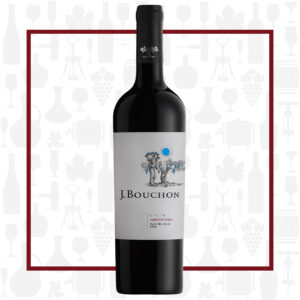Cellar Profile
Working in Chile since 1887, the Bouchon family, a name synonymous with quality in Bordeaux, purchased an old vine, granitic soil, dry-farmed vineyard in the central Maule Valley called Mingre. Working organically since inception, the Bouchon Family Estate has acquired another two vineyards, with different soil compositions and perspectives. Preferring a hands-off approach to winemaking, these minimal interventionists are part of the movement to bring the exciting, indigenous Pais grape back to its former glory as the workhorse varietal of Chile. They are also part of a small group of Chilean winemakers that form an association known as “Vigno”, created to highlight the exquisite qualities of Carignan from the Maule Valley. The Carignan vines must be at least 60 years old, dry-farmed, and organic. Bouchon wines garner accolades around the world, and their Natural versions of Pais (Pais Salvaje) are made from untrained, wild vines that have mutated and spread over the centuries around their home vineyards, twisting around trees, harvested on ladders from the treetops themselves. Working with concrete, French oak and clay amphorae in the cellar, spontaneous ferments are used in order to further highlight the unique terroir of their vineyards.
Region
The Maule Valley was one of the first viticultural regions in all of South America, planted most commonly to Pais (known in California as Mission grapes). Part of the larger Central Valley region of Chile, Maule lies further south than the better-known Colchagua and Maipo regions. It is also cooler than Colchagua or Maipo. The flow of the Maule River that runs into the Pacific helps moderate daytime temperatures in the interior part of the region and cool evenings during the growing season help maintain freshness and acidity in the wines produced. The proximity to the Pacific Ocean means there is plenty of rain during the winter, but the growing season is extremely dry. You find primarily alluvial soils from old sea beds, along with red clay and granite. As the resurgence of Pais has brought more acclaim to the old vine vineyards of the region, so has cultivation of Carignan. This French grape gives plush, black fruit-scented wines with structure. “Vigno” (which stands for Vignadores de Carignan) is an association of old vine Carignan growers whose goal is to create an appellation of origin for wines made from old Carignan vines that have been dry-farmed and bush-trained in the Maule Secano area.
Vineyard
The Mingre Vineyard is planted on interior dry land on the west side of Chile’s Coastal Mountains, 45 km from the Pacific and 193 meters above sea level. Here you’ll find some of the oldest soils in the country. The practice of dry farming reduces yields and gives smaller, but more distinctive grapes. The newer Santa Rosa vineyard has alluvial, pebbled soils, due to its proximity to the Maule River. A small amount of drip farming is used. Both vineyards are farmed sustainably and organically. The expressive wines from these vineyards have freshness and intense minerality.
Varieties
Carménère is one of the “lost” Bordeaux grape varieties, once widely grown in the Medoc.Carménère needs moderate or warm climates to fully ripen or it can give vegetal and green notes to a wine. These wines tend to be medium-bodied, with red fruit and spice characteristics, however brawnier, more robust examples are possible when given proper care in the vineyard. Syrah was found to be the offspring of two obscure grapes from southeastern France, Dureza and Mondeuse Blanche. The style and flavour profile of Syrah is greatly influenced by the climate in which the grapes are grown. Moderate climates, such as the northern Rhône Valley, tend to produce medium- to full-bodied wines with medium to high levels of tannins and notes of blackberry, mint and black pepper. In hot climates, Syrah is more consistently full-bodied with softer tannin, jammier fruit and spice notes of licorice, anise and earthy leather.
Winemaking
Mechanical harvest, followed by hand sorting of individual berries. The grapes are gently crushed, macerated for two weeks and fermentated in stainless steel. 50% of the wine is transferred into new 225L French Oak barriques for 6 months of aging before release.
Tasting Notes
Deep Purple isn’t just a band! It perfectly describes the colour of this ripe, expressive charmer. Cassis, blackberry and baking spice on the nose. Smooth, supple and medium-bodied, with a hint of back-end tannins. The balance comes mainly from freshening acidity. Black fruit and white pepper on the palate, with a savoury element that adds complexity. Serve at cellar temperature with grilled lambchops, portobello mushroom burgers or as a contemplation wine on a cool evening.

 info@buyersandcellars.ca
www.buyersandcellars.ca
info@buyersandcellars.ca
www.buyersandcellars.ca